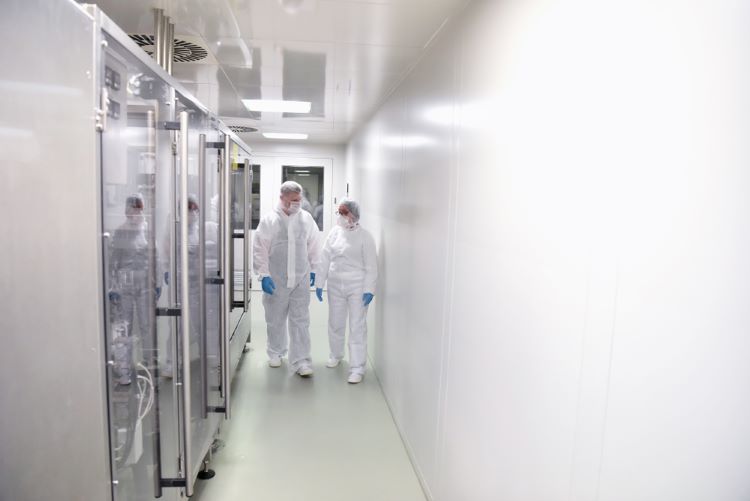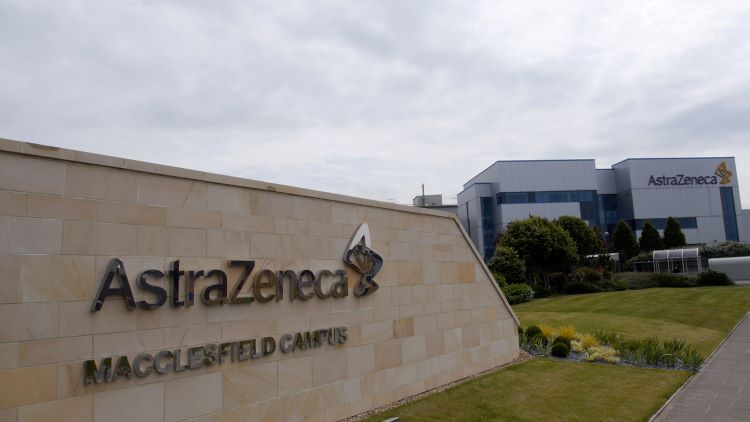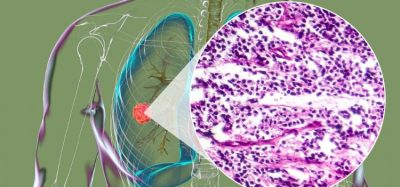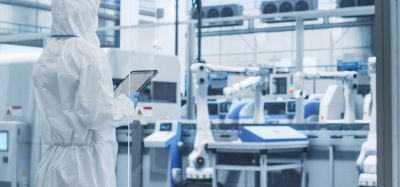Key developments in pharmaceutical manufacturing – September 2023
Posted: 12 October 2023 | Catherine Eckford (European Pharmaceutical Review) | No comments yet
This article outlines the recent progress of several major new manufacturing facilities that will be central in supporting the production of innovative therapies in Europe.


September 2023 saw a wave of new pharmaceutical manufacturing facility expansions and launches across Europe.
With the goal of supplying cell therapies, vaccines and other essential medicines such as antibody drugs to patients, the facilities aim to address major supply challenges and navigate the intricacies of producing fragile biological products. Importantly, each site features advanced technologies to support development and manufacture of these therapeutics.
Research by the Confederation of British Industry (CBI), released in September this year, highlighted progress for UK manufacturing in its latest Industrial Trends Survey. While the data was based on responses from 292 manufacturers across all sectors, the outcomes are applicable to pharmaceutical manufacturing.
“Output in the manufacturing sector weakened over the past quarter and is expected to flatline at best through the rest of this year. With order books having been below their long-run average for eight out of the last nine months, manufacturers see little prospect of a recovery in the final months of the year.
“Materials and financing costs are high and squeezing manufacturers and their customers alike. The [UK Government’s] Autumn Statement provides an important opportunity for the Government to lay the foundations for a sustainable recovery through a broad focus on tax incentives for investment, support with upskilling workers and help for firms to make the most of green growth opportunities,” Anna Leach, CBI’s Deputy Chief Economist commented upon the survey’s release.
Sustainability in pharmaceutical manufacturing
AstraZeneca – biomethane supply
AstraZeneca will establish the first industrial-scale supply of biomethane”
In mid-September, a 15-year partnership between AstraZeneca and Future Biogas was agreed. The pharmaceutical company stated it will establish the first industrial-scale supply of biomethane. AstraZeneca’s facilities in Macclesfield, the UK’s largest pharma manufacturing site, as well as Cambridge, Luton and Speke will all be supplied by energy from the new facility, which is currently being built.


Credit: AstraZeneca
Alongside biomethane supply, AstraZeneca’s operational investment in energy efficiencies, such as using locally grown crops as feedstock and bioenergy carbon capture at the renewable gas site, brings the company’s total economic pledge for achieving Net Zero to £100 million.
Juliette White, Vice President of Global Sustainability & Safety, Health & Environment at AstraZeneca, commented that its multi-million-pound sustainability commitment shows that the company is “serious about decarbonising the discovery, development and manufacture of medicines and securing a sustainable future for [its] sites across the UK and globally.”
Astellas – sustainable innovation
September also saw Astellas Pharma Inc. make known its intention to build a new €330 million state-of-the-art manufacturing facility in Tralee, Co. Kerry, Ireland.
Astellas Pharma’s new €330 million state-of-the-art manufacturing facility in Tralee, Ireland will have sustainability at its core”
In addition to the investment boosting capacity and capabilities for aseptic drug products, the site will have “sustainability at its core”, Michael Lohan, CEO of Industrial Development Authority (IDA), declared at the time of the announcement. The new facility will reinforce stable production for global supply and accelerate the development and commercialisation of innovative medicines such as antibody drugs.
According to Astellas, sustainability measures at the facility will include reducing water consumption by approximately half, a commitment of zero waste to landfill (compared with LEED® baseline), and onsite renewable technology.
The completed facility will have a total floor area of 17,000m2.
Subject to planning permission, the site is expected to be opened by 2028.
A €25 million drug delivery manufacturing investment
To boost capacity in producing user-friendly oral dosage forms, German CDMO HERMES PHARMA announced in September it is investing €25 million in its manufacturing capabilities.
Features such as new equipment, increased production and storage capacity and greater operational efficiency will support growing demand. For example, the investment will add expanded Good Manufacturing Practice (GMP) manufacturing space according to the organisation.
Andreas Ulrich, Chief Operating Officer of HERMES PHARMA told EPR that the new equipment enables the company to boost output to customers faster. “For example, our new filling lines almost double our output of sachets — with the same floor space and personnel. Similarly, our new coating equipment boosts output approximately six-fold.”
The new equipment also boasts environmental benefits as well as in technology innovation, Ulrich added. “The new filling lines enable us to use smaller sachets with less foil, driving sustainability. What’s more, the new coating equipment will free up older equipment to pilot innovative coating techniques, enabling, for example, products that withstand warmer and humid climates.”
In his response, Ulrich summarised that very few CDMOs have the expertise and capacity to manufacture user-friendly dosage forms. Therefore, this investment is supporting the sector to better cater to changing needs and preferences of patients.
Ireland’s €1 billion pharmaceutical manufacturing facility investment
In another Ireland-based manufacturing investment, MSD’s new facility in Dunboyne, Co. Meath opened last month. The company also announced the expansion of its first vaccines operation outside of the US, at MSD Ireland’s Carlow site.
In total, both projects represent an investment of over €1 billion.
MSD Carlow runs as a filling site for the launch and commercial supply of vaccines, biologics, and small-molecule drug products.
The Dunboyne facility is the company’s first biologics drug substance single-use commercialisation facility. Positively, recent investment will significantly speed up bringing these medicines to market, MSD Ireland reported.
This new investment “reinforces the {Irish} Government’s commitment to balanced regional development, and further enhances Ireland’s global status in the pharmaceutical sector,” stated Taoiseach Leo Varadkar TD.
Denmark’s cell therapy revolution
The Novo Nordisk Foundation declared in September that it was investing up to £110 million in a new manufacturing facility for cell therapies in Denmark.
At the time, CEO of the new Novo Nordisk Foundation Cellerator, Thomas Carlsen, told EPR that for cell therapy manufacturing, two of the biggest production challenges are the expense and the complexity of production. As cell therapies are still in “the explorative phase”, there are not many manufacturing facilities taking on these projects, he explained.
As cell therapies are still in ‘the explorative phase’, there are not many manufacturing facilities taking on these projects”
A key aspect of the new pharmaceutical manufacturing facility is that it will help to drive these cell therapy candidates to the clinical stage. According to Carlsen, developing “cell therapy products in large, consistent quantities” in Denmark is difficult, due to limited resources. So, by the time the facility is operational, anticipated for 2027, it has potential to transform access for clinical phase development of cell therapies in the region.
Interestingly, the facility will be sited at a university campus, Carlsen revealed. This is in line with a primary goal of the manufacturing facility: to build “a strong network for collaboration and knowledge sharing,” he explained.
At the time of the announcement, Professor Mads Krogsgaard Thomsen, CEO of the Novo Nordisk Foundation, shared that the Novo Nordisk Foundation Cellerator has potential to be “a leading player in Europe and a model for similar facilities around the world”.
RNA innovation in pharmaceutical manufacturing
In September, the Centre for Process Innovation (CPI) launched the first pharmaceutical manufacturing facility in the UK that can support the “complete clinical manufacturing chain for RNA, including lipid nanoparticle (LNP) production,” Julie Anderson, Head of the RNA Centre of Excellence shared with EPR.
With RNA being “a new and rapidly evolving therapeutic technology with developments ongoing [such as] self-amplifying RNA,” she highlighted that the facility has the flexibility to incorporate these new approaches.
The new £26.4 million RNA Centre of Excellence, now opened in Darlington in the UK, has capacity to deliver 100 million vaccine doses”
Importantly, the facility enables processes “to be efficiently developed and then rapidly translated to GMP production for testing in the clinic,” she added.
The new £26.4 million RNA Centre of Excellence, now opened in Darlington in the UK, has capacity to deliver 100 million vaccine doses. Anderson explained to EPR that this “provides the UK with a facility configured and available to support any future UK health emergency”.
Commercially, establishment of the RNA manufacturing facility will help to attract inward investment and promote resilience and sustainable growth into UK healthcare.
Accelerating microbiome therapeutic production in Europe
Construction of Europe’s largest microbiome ecosystem therapies manufacturing facility was completed in September this year.
When production at the 17,200-ft2 site begins, currently anticipated for the end of Q3 2023, the facility will further enhance bioproduction capabilities and contribute to the growth of the sector in France and Europe. This is because these therapies require advanced manufacturing techniques and procedures, MaaT Pharma stated.
Realisation of the microbiome manufacturing facility is the result of a partnership between MaaT Pharma and French CDMO Skyepharma, which could lead to the creation of a dozen specialised roles within the industry over the coming years.
MaaT Pharma stated in its original announcement that the first production campaign in the new plant was expected to begin by the end of Q3 2023.
Which new pharmaceutical manufacturing facility are you most looking forward to being developed and why? Comment below to share your thoughts or reach out to us on social media.
Related topics
Big Pharma, Biopharmaceuticals, business news, Clinical Development, Clinical Trials, Drug Development, Drug Manufacturing, Drug Supply Chain, Gene therapy, Good Manufacturing Practice (GMP), Industry Insight, investment, Manufacturing, Microbiomes, oral therapeutic candidate, Outsourcing, Research & Development (R&D), Sustainability, Technology, Therapeutics, Vaccines, Viruses
Related organisations
Astellas, AstraZeneca, Centre for Process Innovation (CPI), Confederation of British Industry (CBI), HERMES Pharma, MaaT Pharma, MSD, Novo Nordisk Foundation, Skyepharma, UK Government









